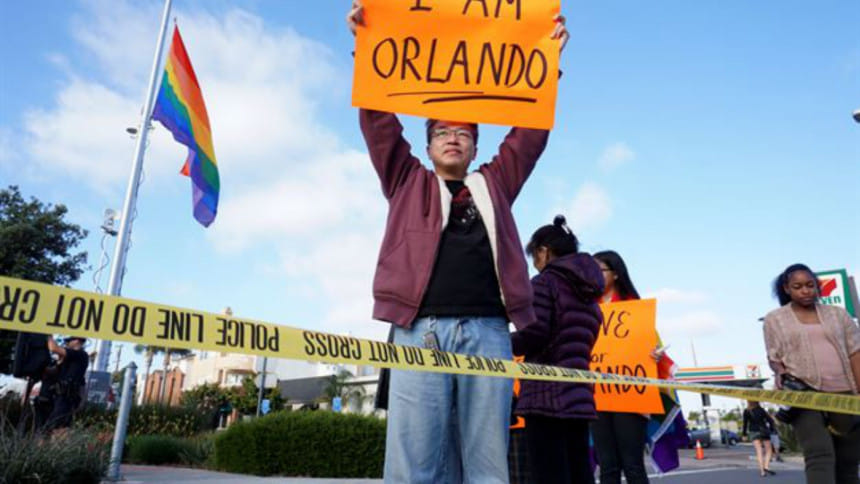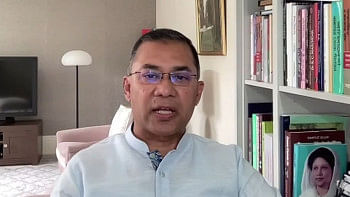Time for pondering and not populism

The terrible massacre that took place in the Orlando gay club Pulse, which killed 50 and injured another 50 or so, must be condemned in no uncertain terms. The killer, Omar Mateen, who happens to be a Muslim and was shot dead by the police, was apparently a psychopath and a homophobe.
Reactions to this horrific incident have been quick; some cautious, some not so cautious, some outright irresponsible. For example, even before the deaths of Omar Mateen's killing spree were counted, the presumptive Republican nominee Donald Trump took to Twitter and claimed that the massacre was the work of "radical Islamic terrorists" that he argued are endangering the American way of life, and reiterated his now familiar fear mongering campaign demand that Muslims in general are a threat to America and thus should be banned from entering the county.
President Obama has been prompt in denouncing Trump, and said that Trump was peddling a "dangerous" mindset. Arguing that Omar Mateen was no different than other American lone gunmen that perpetrated similar killings in Bernardino, California, Ford Hood, Texas, Obama said that focusing on the faith of one particular killer and asking for differential treatment for the entire community which belongs to the faith of the Orlando killer is not only an affront to America's democratic values but something that is likely to make America "less and not more safe".
Hillary Clinton, the presumptive Democratic presidential candidate also criticised Trump for his reckless comments, and echoed Obama, terming the mayhem as an "act of terror" and demanded greater security for America against threats from both home and abroad. She further specified gun control as key to stopping such mindless mayhem by lone lunatics in future.
Bernie Saunders, the Democratic nomination contender, has reacted strongly by saying that Trump is "unfit for president".
These responses illustrate just how varied, if not "confused", the political response have been on the issue. In this regard, The Guardian contradicts Trump and the right wing US media, suggesting that "Whatever else this is, it's not about immigration".
Omar Mateen, the killer, was born in America and thus, "Whatever compelled him to commit such a terrible act cannot be laid at the border of a foreign nation," as his "hatred was home-grown." Incidentally, that there were 330 such killings in America last year alone indicate that something rather deep-rooted in the way the American society operates may have something to with such lone mass gun killings in that country.
One thing is clear; such killings cannot be attributed to one single reason. As far as Orlando is concerned motivation is not necessarily Islamic injunctions against homosexuality though that seems to get more media space (homophobia has existed in other religions including Christianity), nor is it an act of 'Islamic terror' (terrorist killings are not unique to Islam and are happening all over the world on a daily basis, of which only very few are 'Islamic') and neither is it due to lack of gun control in the US, though this is an important concern (in France gun control is stringent, and yet acts of terrorism have become quite regular in the country these days). The Guardian says, "The truth is it is, most likely, about lots of things. And the bolder the claim that it is about any one thing, the more vulnerable it will be to contradiction and qualification".
Joe Brewer in his article, "Connecting the Dots between Terrorism and Mass Shooting" (published in medium.com) looks at the phenomenon from a very different perspective. He argues that "Our media fails to connect the dots between an exploitative global economic system and violence around the world" and criticises the US media's efforts to link the mass shooting in America which is in "epidemic" form as part of "global terrorism". Brewer argues that, "Terrorism and mass shootings are intimately connected to global architecture of wealth extraction" and that "I am sick and tired of Islam being blamed for harms arising through the combination of Western Imperialism abroad (yes, the invasion of Iraq really was about oil) and the gutting of social infrastructure at home (tax cuts = wealth transfer from working people to the top echelon of financial elitism)".
These are valid points. Indeed, the rise of neoliberalism since mid-eighties has witnessed the rise and dominance of profiteering morally bereft rich that are contributing to gross inequality, marginalising people and denting democratic political norms such that political systems are now regularly manipulated by the wealth hoarders to become wealthier (the gun lobby is a good example and as they both represent Wall Street, the choice of Hillary and Trump as presidential candidates is no exception either) at the cost of others, have coincided with a steady rise in terrorist acts both by the state and non-state actors, in a cyclic motion. Thus in many ways, the rise in global conflicts and killings in many parts of the world where both governments – local and international – and non-government actors kill each other on a daily basis are nothing but manifestations of self-seeking policies of political elites that, on the one hand, organise killings to suppress opposition to "extractive capitalism", and on the other, force the suffocated people to resort out of desperation to acts of terrorism of many kinds.
In the globalised world of terrorism, governments go out and kill dissenting voices without any justice. Foreign drones and bombs dropped from above the sky kill hundreds and thousands in many countries. Religious terrorists posing themselves as crusaders of religious purity kill each other without remorse. Killings are happening all around us without reprieve. We try to remedy killings by more killings, and the result is obvious – a bonanza of killings.
Thus in order to stop the repetition of all forms of killings, mass or targeted, that are perpetrated by both non-state and state actors, we must look at the issue more holistically, and not confine ourselves to one particular country or group. Instead, we need to go beyond the superficial and start looking at causes that connect the "dots between terrorism and mass killings", which on the one hand manipulate the system to kill to keep its control on wealth accumulation, and on the other and as result, create the conditions for desperate acts, such as witnessed in Orlando recently. If we keep on going the way we are going and not reflect, no one will be safe.
The time is for pondering, not populism.
The writer is a Professor at the School of Social Sciences, University of Queensland, Australia and former senior policy manager of the United Nations.

 For all latest news, follow The Daily Star's Google News channel.
For all latest news, follow The Daily Star's Google News channel. 



Comments